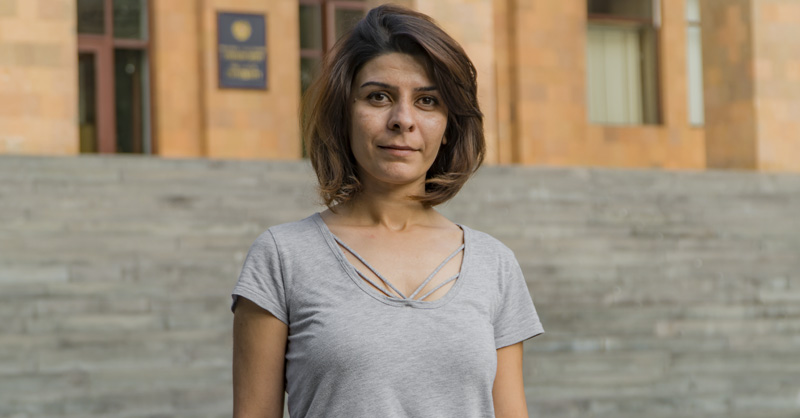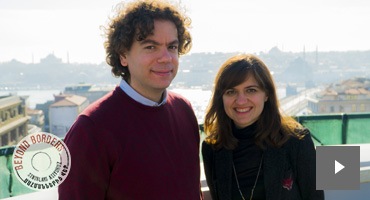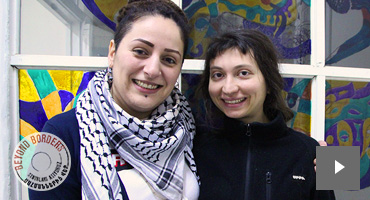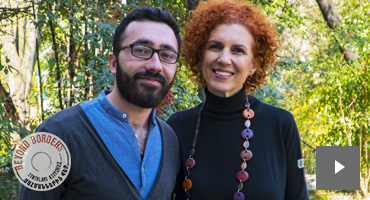Hrant Dink Foundation, through the projects implemented under Turkey-Armenia Programme, makes efforts to build closer ties between the peoples of the two neighbouring countries. Turkey-Armenia Fellowship Scheme, initiated for this purpose within the framework of the programme Support to the Armenia-Turkey Normalisation Process financed by the European Union, aims to foster cross-border affiliation and cooperation of professionals from the two neighbouring countries, while strengthening the ties between these two cultures.
The border between Armenia and Turkey is closed since 1993 and, since then, the lives of many have been affected from the situation directly or indirectly. The people most affected are, of course, those who live on the two sides in close proximity to the border but cannot touch the land they see every day. Rezzan Alagöz was born and grown in the Eastern province of Iğdır, so she is among those who witnessed the consequences of the closed border in the first place. Nowadays, Rezzan is doing a PhD research about the impacts of the closed border on the daily lives of these people in the border region and how they perceive each other under those circumstances.
Rezzan Alagöz received her Bachelor’s degree from Istanbul University Sociology Department in 2007 and her Master’s degree from City University of New York on with her thesis on “The Impacts of Neo-Liberal Policies on Turkey in 2000-2001”. Rezzan is a PhD candidate at Mimar Sinan University Sociology department and works as a research assistant at Adıyaman University Sociology department. As a fellow at Hrant Dink Foundation’s Fellowship Scheme, Rezzan Alagöz continued her research at Center for Civilization and Cultural Studies of Yerevan State University for four months. During the time she spent in Armenia, Rezzan conducted a comprehensive literature review, while doing oral history in the border villages.
Tatevik Petrosyan, a junior researcher at the host organisation, Yerevan State University, Centre for Civilization and Cultural Studies, notes that, at the Centre, they mainly focuses on the issues such as regional security, social and political relations and intercultural cooperation, as part of international relations and global politics. Petrosyan says that their Centre aims to develop regional networks and cooperation, and at that point, the Fellowship Scheme has a key role by establishing a solid bridge between researchers from Armenia and Turkey. She also emphasises Rezzan’s contribution to the Centre, in particular to other researchers working there, as they all see together that the borders are only in people’s minds.
Rezzan Alagöz and Tatevik Petrosyan have talked about their experiences with the Turkey-Armenia Fellowship Scheme and their suggestions for future fellows and host organisations.
Please Note: Armenian, Turkish and English subtitles are available in the videos.

Turkey-Armenia Fellowship Scheme
takes place within the framework of the programme
Support to the Armenia-Turkey Normalisation Process
funded by the European Union.




